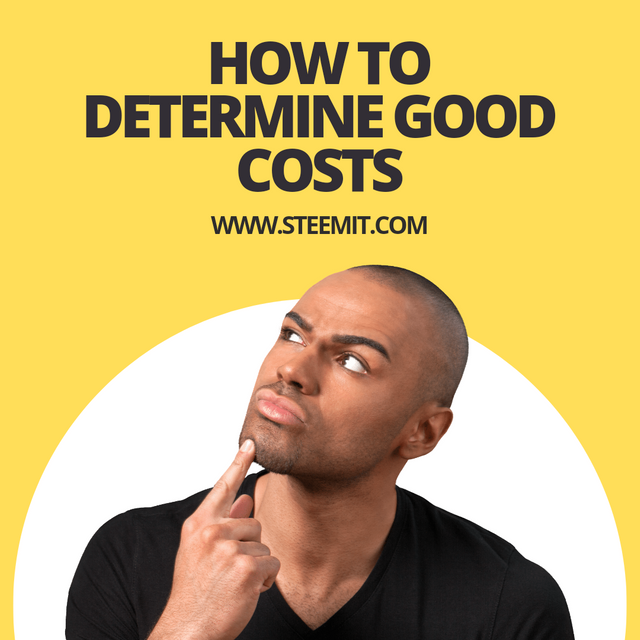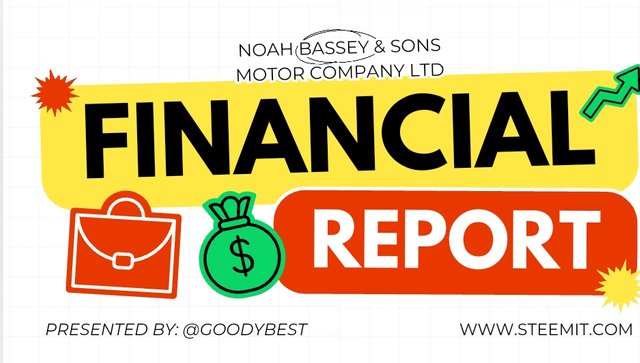SLC | S21W1 | Costs For Entrepreneurs - Introduction To Cost.

Cost is so important to all entrepreneurs; it helps them to determine an effective cost price for each product and service. But the question is what is cost?
What Is Cost And How Important Is It For Entrepreneurs? |
|---|
Cost is the total amount of money used in the production of goods or services. This includes expenses like money used to buy materials, paid for labor, overhead, and operational costs. Entrepreneurs must understand costs, below are some of the reasons they should:
Firstly, effective cost management will help an entrepreneur to set competitive pricing strategies. Knowing the total expenses involved in producing a particular product or offering a service will allow an entrepreneur to set the price of their products or services more appropriately to ensure profitability while the business still remains attractive to customers.
Costs play a vital role in financial planning and budgeting. All entrepreneurs must forecast expenses with accuracy to secure funding, monitor cash flow, and then make well-informed decisions about resource allocation.
Additionally, having a good understanding of costs will help an entrepreneur to identify areas for efficiency improvements and to note potential cost reduction, which can help in enhancing the overall business performance.
Lastly, analyzing the cost structures (that is, both fixed and variable costs) will enable entrepreneurs to assess the profitability of different products or services the company offers; it will also help in making strategic decisions about which areas they can invest in or scale back.
What am I saying? Cost is integral to an entrepreneur's success; it helps him to set an effective price for each product or service, it helps the entrepreneur budget, and it influences the overall business strategy. So effective cost management is a cornerstone of any sustainable business practices.
Establish The Difference Between Costs And Expenses, Giving Examples Of This Through A Real Case. |
|---|
Here are five differences between costs and expenses, illustrated with a real case example:
| COST | EXPENSES |
|---|---|
| Costs refers to the total amount incurred to produce goods or services. It's associated with the price of goods or services, both direct/indirect costs | Expenses are the costs that have been incurred during a specific accounting period and are deducted from revenue to calculate profit. It's an operational cost, money incurred in the process of running and maintaining a business operation. |
| Cost can be fixed or variable; for example, the rent for a car stand (fixed cost) is $1000 monthly, while the cost of servicing the car from time to time will vary depending on the person being hired to do it (variable cost) | Expenses can not be fixed, and it usually appears in an income statement. |
| Cost price determines the selling price of a product or service, it includes expenses | Expenses are the cost of running a business smoothly over some time. |
| Cost price affects pricing strategies and profit analysis | Expenses affect the net income reported. |
Example: *The cost of buying a car is $20,000; this cost encompasses the amount I pay to purchase the vehicle, shipping, customs duty, transportation, gas, the cost of maintaining the car daily, and the cost of rented premises that the car is being kept. *
But expenses, on the other hand, can be $500. It could be direct or indirect; This includes the cost of labor, for example, the person I paid to do the servicing on the car for me, and the cost of maintaining the car until I sell it out. Advertisement falls under expenses, too, that is the amount I paid to market the car to potential customers; it could be the data I subscribe to advertise the car on social media like Facebook, WhatsApp status, Twitter, Instagram, etc. During car sales, I need to include all these costs in other not to run losses.
In essence, Calculating the cost price is essential for businesses as it includes both the cost of producing goods/services and the expenses incurred over time; this helps determine the selling price and profit margins.
What Are The Benefits Of Performing A Good Cost Determination? |
|---|

Performing good cost determination offers numerous benefits for a business:
Informed Decision-Making: Having accurate cost data will give an entrepreneur insights that will help him to make strategic decisions regarding pricing, budgeting, and investment.
Profitability Analysis: Knowing and understanding costs will help entrepreneurs to identify areas where they can improve their profit margins, and where any inefficiencies may exist.*
Resource Allocation: when an entrepreneur knows the costs associated with different products, departments, or different projects, he will know how to allocate resources more effectively to maximize profits.*
Budget Management: Detailed cost determination will help in creating realistic budgets, thus avoiding overspending and financial strain.
Cost Control: When an entrepreneur monitors the business cost regularly, it will allow time for him to adjust and intervene when necessary, and this will lead to better cost control and operational efficiency.*
Competitive Advantage: Businesses that can accurately assess their costs will be able to set competitive pricing strategies in the market & thus enhancing their position.
Risk Management: When an entrepreneur Identifies both the business's fixed and variable costs, it will allow him to prepare for any potential financial challenges the business might face.
Sustainability: When an entrepreneur understands costs, he will be able to identify expenses that were not necessary, in return sustaining the business and increasing efficiency.
What more can I say than, effective cost determination is so important! It supports long-term growth and stability while enhancing overall business performance.
How Do You Determine The Costs Of Your Business? If You Are Not An Entrepreneur, How Would You Do It? |
|---|

I'm into car dealerships, and determining the cost of running this business requires a detailed cost analysis, which includes various expenses from fixed costs to variable costs. Understanding these costs impacts my profitability. Here's a breakdown of the key costs.
1. Fixed Costs: These costs are relatively stable regardless of how much sales I make monthly. An example of such costs is my dealership location is fixed which is (2% of the car selling price). I know that I will pay 2% to the owner of the place each time I sell any of my cars.
Salaries: I've hired some permanent workers, like my salesboys; they are always at the car stand, washing the cars daily, powering the engine, and attaining to customers when I am not around; I have a fixed cost I'm paying them monthly.
Insurance/Utilities: This is the business insurance; I've insured all my assets, in case of unforeseen occurrences, and bills like car trackers (I normally install before transporting the vehicles from the port, which is far from my business location), electricity, and gas.
2. Variable Costs: These expenses are not stable. Yes, they change, and so many factors, both internal and external, can affect it, and this cost depends on my sales volume and the specific cars I handle. Examples of these costs include:
Inventory Costs: Is the cost of purchasing the vehicle I'll sell, it includes, the cost of transporting the vehicle from the company I bought to the shipping company, the shipping cost (From USA to Nigeria), customs duty (which is 35℅ of the car price multiply the dollar rate to Naira), transportation (from the port to car stand), and inspections.
Marketing and Advertising: This cost is related to the things I've done to attract customers, such as online ads, print media, and promos.
Repairs and Maintenance: These include the cost of repairs; you know, sometimes I have to repair certain parts on the vehicle after buying or even changing the part entirely, the cost of servicing, and reconditioning vehicles (like painting) before sale.
Transportation and Delivery: These costs are associated with transporting vehicles to and from the dealership to potential customers.
3. Other Costs: These are additional expenses to consider. Costs like agency and clearing fees.
Licensing and Registration: These are fees I incurred for operating my dealership and selling cars.
Depreciation: The value of vehicles, will decrease over time.
Conclusion: I used to carefully analyze all these cost factors; with it, I've been able to set realistic pricing, create a comprehensive budget that helps me to make informed business decisions, monitor market trends to optimize my inventory cost and pricing, and ensuring that my car dealership business thrives. I always remember to track my expenses regularly and adjust my pricing and operations as needed to maximize profitability.
I love this course because it's my area of specialization and I'm into business. So count me in!